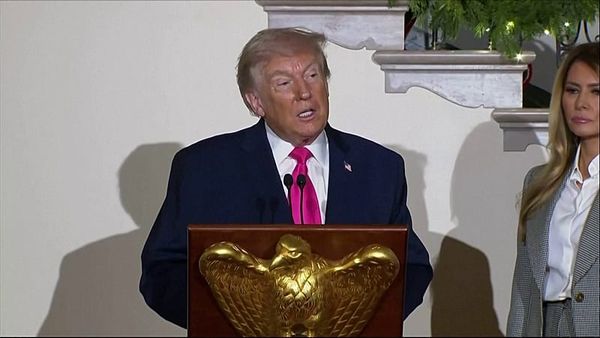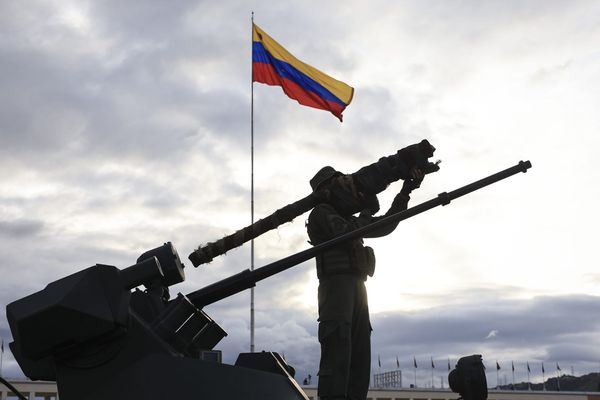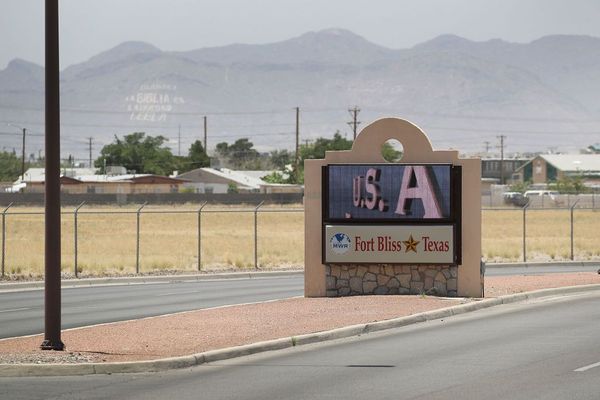
The US and South Korea have reaffirmed their alliance, agreeing that nuclear-armed submarines would resume port visits and threatening a “swift, overwhelming and decisive response” to any North Korean nuclear attack, including retaliation in kind by the US.
The South Korean president, Yoon Suk Yeol, said that response would include US nuclear weapons, making explicit an element of the alliance that normally remains unspoken.
The warning to Kim Jong-un’s regime came as Yoon and Joe Biden issued a joint declaration marking the 70th anniversary of the alliance, during a visit by the South Korean leader to Washington on Wednesday.
“A North Korean nuclear attack against the US or its partners is unacceptable, and would result in the end of whatever regime took the action,” Biden said.
“I have absolute authority, and sole authority, to launch a nuclear weapon, but what the declaration means is that we will consult with our allies, if any action is so called for.”
The visit and the declaration have come at a time of increasing nervousness in South Korea about North Korea’s nuclear buildup, and calls for Seoul to develop its own nuclear arsenal. The Biden administration is seeking to reassure the South Koreans of the US’s security commitment, amid signs that the North has made significant advances in its weapons programme, despite years of international sanctions targeting the regime in Pyongyang.
Concern over the threat posed by its neighbour has sparked a serious conversation in South Korea over whether the country should develop its own nuclear deterrent. Once considered a peripheral view, the idea of possessing nuclear weapons is now supported by most South Koreans, according to recent opinion polls.
The South gave up its nuclear weapons programme almost 50 years ago when it signed the Nuclear Non-Proliferation Treaty, and officials in Washington are eager for that stance to continue, fearing that the peninsula could become the centre of a potentially dangerous arms race between North and South.
But North Korea’s rapidly advancing weapons programmes - including ballistic missiles that can theoretically reach the US mainland – have added to concern in South Korea over whether the US would really use nuclear weapons to defend its ally under what it calls “extended deterrence”.
Yoon, a conservative who has ditched his liberal predecessor’s policy of engaging with the North, earlier this year said his country was weighing developing its own nuclear weapons or asking the US to redeploy them on the peninsula.
While Wednesday’s agreement will see the US and South Korea coordinate more deeply on a nuclear response strategy in the event of an attack by the North on its neighbour, nuclear weapons would remain under US operational control, while Biden made it clear that he was not contemplating the deployment of nuclear weapons in the South.
“We are not going to be stationing nuclear weapons on the peninsula,” he said.
In the declaration, Biden said Washington’s security commitment to Seoul was “ironclad” and that any North Korean nuclear attack on South Korea would be “met with a swift, overwhelming and decisive response”. US extended deterrence, it said, was “backed by the full range of US capabilities, including nuclear”.
The declaration also said the allies would consult more extensively “to defend against potential attacks and nuclear use and conduct simulations to inform joint planning efforts”.
To underline the presence of the nuclear umbrella, US ballistic submarines armed with nuclear missiles will make port visits in South Korea for the first time since 1991.
“Sustainable peace on the Korean peninsula does not happen automatically,” Yoon said. “Our two countries have agreed to immediate bilateral presidential consultations in the event of a North Korean nuclear attack and promised to respond swiftly, overwhelmingly and decisively using the full force of the alliance, including the United States’ nuclear weapons.
“Deployment of strategic assets will be made constantly and routinely.”
Derek Johnson, managing partner of the Global Zero, a disarmament advocacy group, said the potential use of nuclear weapons by the US would only add to tensions in the region.
“Nuclear weapons are a source of global insecurity and lie at the heart of the crisis on the Korean peninsula,” Johnson said. “Adding more of these weapons to the equation, even temporarily, will not make the United States or South Korea safer or more secure. This is far more likely to aggravate, rather than alleviate, pressures in the region, which could boil over catastrophically at any moment.”
While Yoon is expected to use the declaration to try to persuade voters that Washington is taking South Korea’s concerns seriously, Jenny Town of the monitoring group 38 North said the declaration fell short of what some in the South had hoped for. It was “unlikely to either persuade North Korea off its current course of WMD [weapons of mass destruction] development and testing or to quiet the debate inside South Korea about its own nuclear future”, she said.







